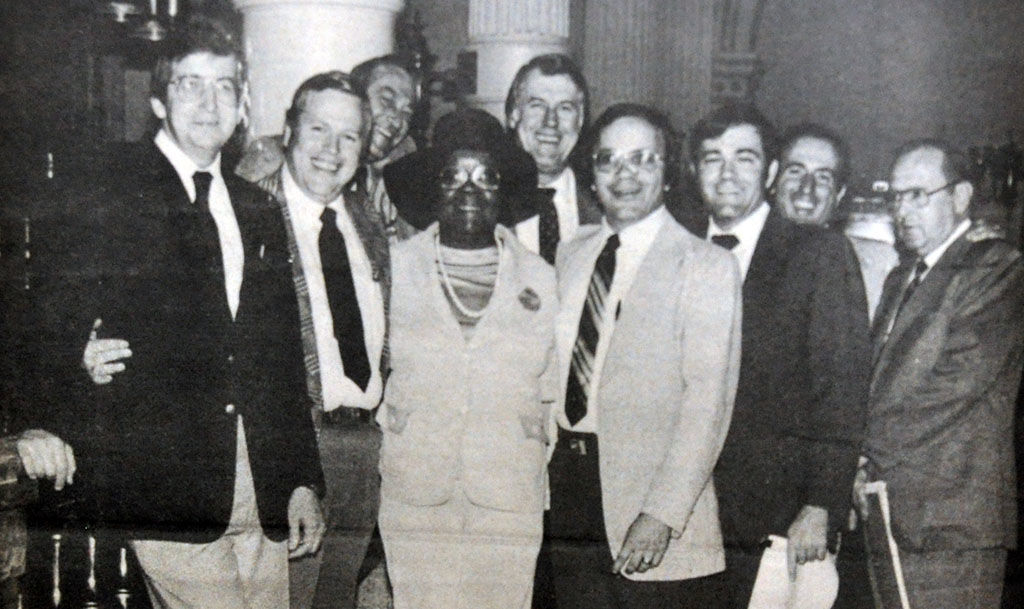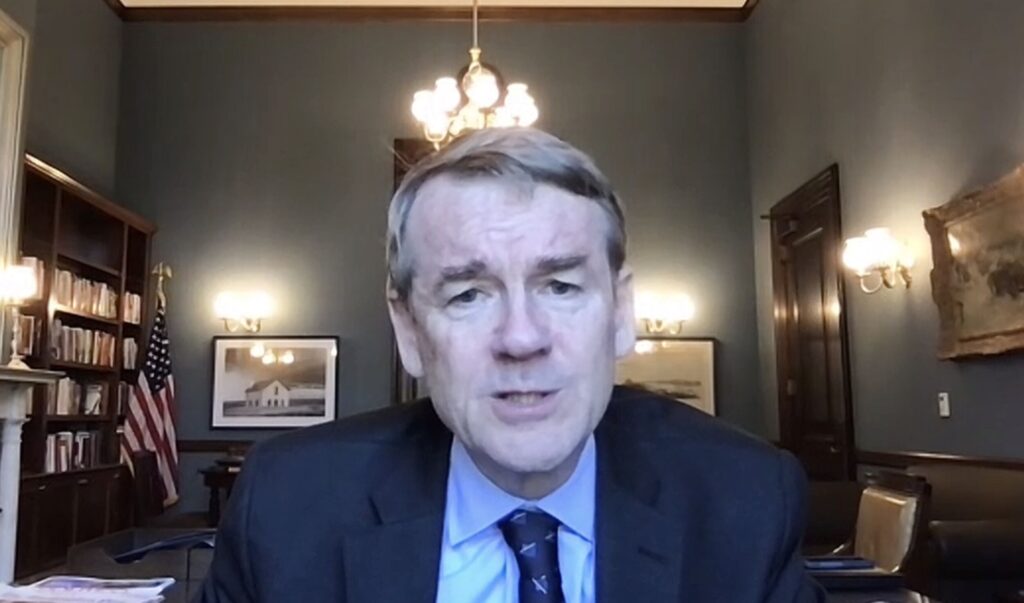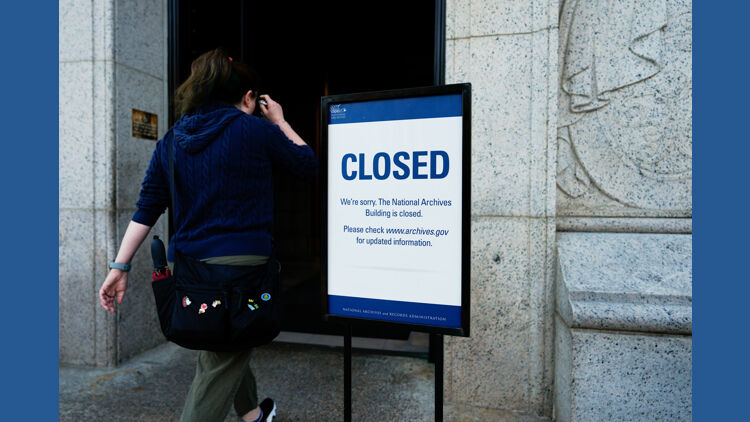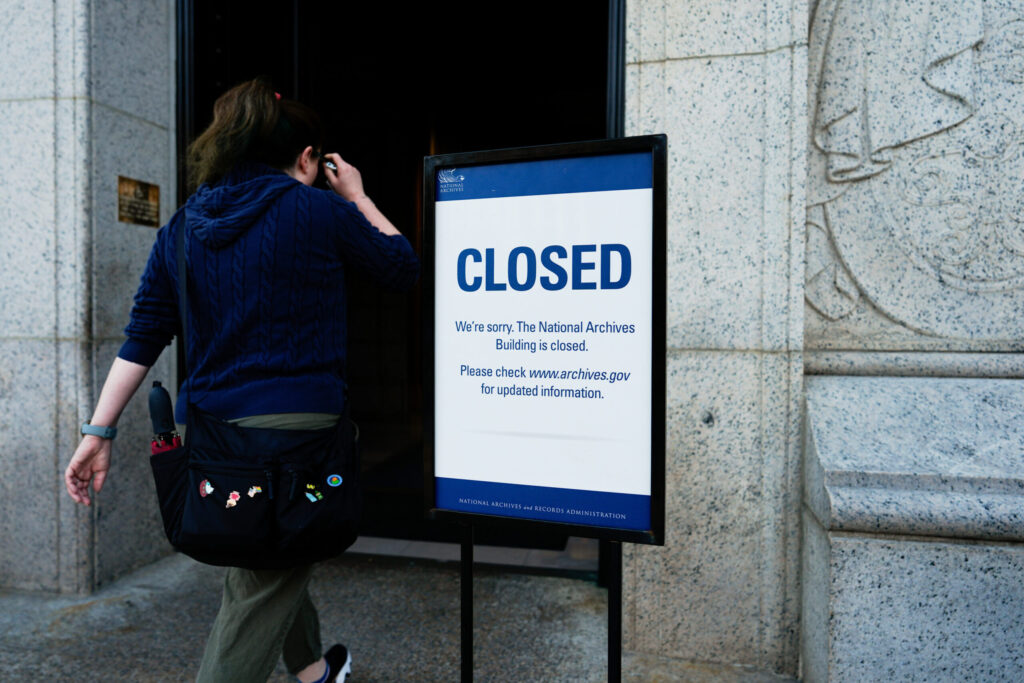YESTERYEAR: Allegations surface that embezzlement scheme helped fund U.S. Senate petition drive

Thirty-Five Years Ago this week in The Colorado Statesman … Some of the money allegedly embezzled from the Central Bank for Cooperatives in Denver by Eve Lincoln, a former coordinator for Secretary of State Mary Estill Buchanan’s 1980 Senate campaign, could have been used to help finance Buchanan’s petition drive to get on the ballot, the Republican’s former campaign manager said. Under federal election law, if that’s what had happened, it could have counted as an illegal corporate campaign contribution, said Curt Uhre, who helmed Buchanan’s bid. He explained that was why the campaign had reimbursed the bank $2,591 just six days before the election, when Buchanan narrowly lost to U.S. Sen. Gary Hart. The story was emerging because Lincoln had just been indicted by a federal grand jury, charged with five counts of embezzlement – allegedly $12,660 via use of bank credit cards and $20,609 in cash over a 12-month period, when she worked for the bank. Lincoln’s attorney refused to comment on the charges except to call the indictment a “political deal” meant to gin up bad publicity and sabotage Buchanan’s chances of winning an appointment by President Ronald Reagan’s recently inaugurated administration. (Buchanan was rumored to be a top candidate to chair the Federal Trade Commission, but the chatter had been building for weeks that angry Colorado Republicans were blocking her appointment in retribution for her end-run around the GOP establishment the previous year, when she petitioned onto the ballot in the Senate race and nearly unseated Hart.) Lincoln said she’d used the credit cards for campaign expenses – including leasing a vehicle to transport petition circulators – and had fully intended to repay what she’d spent from campaign coffers. Uhre begged to differ, saying Lincoln “flirted and operated beyond her scope and was a substantial problem” to the campaign. Buchanan praised Lincoln for her “significant” contributions to the run and called her a “true believer” but saved the most praise for Uhre, who joined Buchanan around the time she’d been indicted for campaign violations tied to her 1978 run for secretary of state. It turned out Uhre had hired investigators to look into Lincoln’s spending the previous summer and fall and “quietly exited” her from campaign operations “to the bewilderment of a few campaign workers” when he became convinced she was overstepping her spending authority. Her attorney reminded The Statesman that an indictment doesn’t mean guilt and vowed a vigorous defense. …
… House Minority Leader Federico Peña, D-Denver, criticized Republican legislators for repeatedly blocking efforts to modernize the state’s mineral severance tax policy in a stinging letter to the editor. Not only had House Finance Committee Chairman Paul Schauer, R-Littleton, refused to put bills to increase the severance tax on the calendar for hearing, but majority Republicans in the House had also voted down Democratic attempts to force debate on a bill by the full chamber. GOP lawmakers had also cavalierly rebuffed an attempt by Democratic state Reps. Ruth Wright and David Skaggs to legislate a modest increase in the molybdenum severance tax, Peña charged. The existing tax was a “unit tax,” Democrats pointed out, charging per ton of extracted ore. Democrats preferred a severance tax that was a percentage of the price, potentially capturing more income when the price of natural resources soared, like the recent 500-percent hike in the price of molybdenum. The Dem proposal would have earmarked additional revenue for highway and other transportation needs caused by increased energy and mineral development, Peña maintained. “By defeating the amendment, industry has won once again – to the detriment of the taxpayers of Colorado, who are asked to foot the bill for the state’s energy development.” Meanwhile, he argued, Wyoming had hiked its severance tax on oil and gas, which would be paid by energy producers, rather than hiking the gasoline tax, as Colorado Republicans had just done, passing the cost on to consumers. “Why can’t Colorado’s Republican-controlled Legislature do the same and ease taxes on Colorado citizens?” Peña wanted to know. …
… U.S. Sen. Gary Hart was the fiercest antagonist when fellow Coloradan Anne McGill Gorsuch appeared for a confirmation hearing before the Senate Environment and Public Works Committee for her appointment to run the Environmental Protection Agency. Gorsuch didn’t reveal much during her testimony, giving mostly “bland and non-committal answers” to Hart’s aggressive questioning, leaving it to a bevy of environmental groups that followed at the hearing to provide plenty of objections to installing the Mountain Bell attorney and former state legislator atop the EPA. Tempers appeared to flare between Hart and Gorsuch when he asked her whether the EPA should impose sanctions on states that weren’t complying with federal environmental laws and regulations. It was a sore spot for Gorsuch, who had railed against those kind of sanctions when she had served in the Legislature. She told Hart she had only missed joining a lawsuit filed by Colorado legislators against the EPA because she’d been out of town when they’d filed it. But she added that she’d later been able to negotiate a compromise because she wasn’t involved in the brinksmanship. She also told senators she wouldn’t “cow-tow” to notoriously hardline Reagan appointees like recently confirmed Interior Secretary James Watt. Gorsuch squeaked by the committee vote and subsequently won confirmation by the full Senate.
– ernest@coloradostatesman.com














